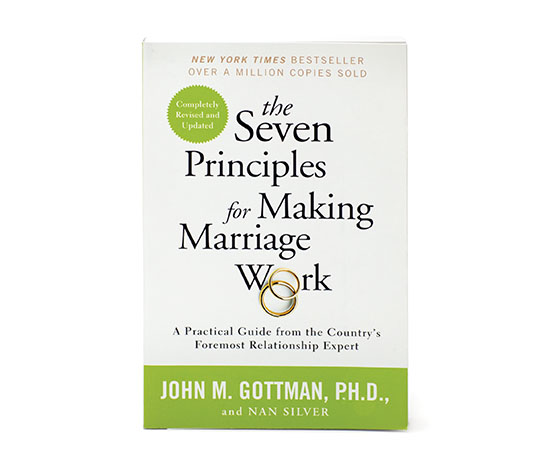If you are newly engaged, congratulations! It is such an exciting time, but it can be stressful as you plan for your deepest commitment. For years, I’ve been a relationship counselor and have had the opportunity to see many different couples. From premarital couples looking to plan their big day to couples who have been together for decades, they all want the same thing: a great marriage. I have found that the sooner you get started, the better.
Throughout my work, I learned five areas of relationships that make couples successful; in other words, a cheat sheet for happily ever after.
Set aside time each day to connect with each other
Create a ritual, such as a daily stress-reducing conversation, at the beginning or the end of the day for just the two of you. Successful couples intentionally create time for each other and invest in one another on a daily basis, and you can start doing that in the premarital stages. If you’re likely to be easily distracted, remember that it’s important to silence your phones and turn off your TV to really connect during this shared time, even if only for 20 minutes a day.
Communication is key
Now that you’re engaged, is your partner expected to know your needs and your wants? Absolutely not! You need to make sure that you are communicating with your soon-to-be better half. Drs. John and Julie Gottman emphasize the importance of building “love maps” in relationships. Knowing the small things about your partner (what their favorite dessert is, what their hobbies are, or what is their greatest fear or biggest dream) deepens intimacy and friendship and helps you to stay aligned during stressful times. Never stop being curious about your partner!
Have sex (and talk about sex!)
Schedule time for sex if you find that you haven’t been connecting physically. That may feel less romantic, but it’s important to set some time aside for intimacy. Think it should be spontaneous? In the beginning stages of your relationship this may have been common, but as your relationship grows and evolves over time and especially through marriage, it’s important to be intentional about making time for sex so that both of your needs are met.
It’s also important to speak candidly about sex with your partner. How do you plan to sustain intimacy throughout your marriage? What are each of your sexual needs and desires? What are your fantasies or new things you want to try? Be specific. Couples who communicate about sex generally have better sex and greater intimacy than those who don’t. Having that conversation from a premarital perspective can help further those conversations once you get married. And if you’re nervous to talk to your partner about these things, it might be a good time to seek out the assistance of a couples therapist.
Discuss finances
If you haven’t already, sit down together and have a premarital conversation about money management. You may even want to meet with a financial planner to talk about setting collaborative goals. If you’re comfortable doing so, be open and real with each other about credit scores and existing debt. Here are some questions to get you started:
- Are you a saver or a spender?
- How should we divide financial responsibilities?
- How do you feel about debt?
- How important is wealth to you?
- How do you plan to finance large purchases and investments, like a car, a home, or (if you want kids) saving for our children’s college tuition?
- How would you approach planning for retirement?
Understand that you are marrying the person as they are, not as who you want them to be
As psychologist Dan Wile says, “when you choose a partner, you choose a particular set of problems.” Love your partner without judgment and accept them for who they are, and remember why you fell in love with them. Many couples come to me wanting their partner to do things “their” way or change their annoying habits, but that can be a futile endeavor. Accept your partner for who they are (even the quirky parts), and if there are behaviors or issues that need to be addressed, remember to engage in healthy, productive conflict and avoid the infamous Four Horsemen.
Reviewed by: Dr. Vagdevi Meunier, PsyD
Vagdevi Meunier, Psy.D. is a licensed clinical psychologist and Founder of The Center for Relationships in Austin, TX. Vagdevi has over 40 years of experience as a therapist, coach, and educator who taught graduate students and professionals at University of Texas and St. Edward’s University in Austin. She is a Senior Certified Gottman Therapist and Approved Clinical Trainer. For the past 20 years, Vagdevi has been facilitating the Art & Science of Love Workshop Gottman retreat for couples in Austin and around the US and has taught all 3 levels of the Gottman professional trainings and coached clinicians from around the world on this method.








